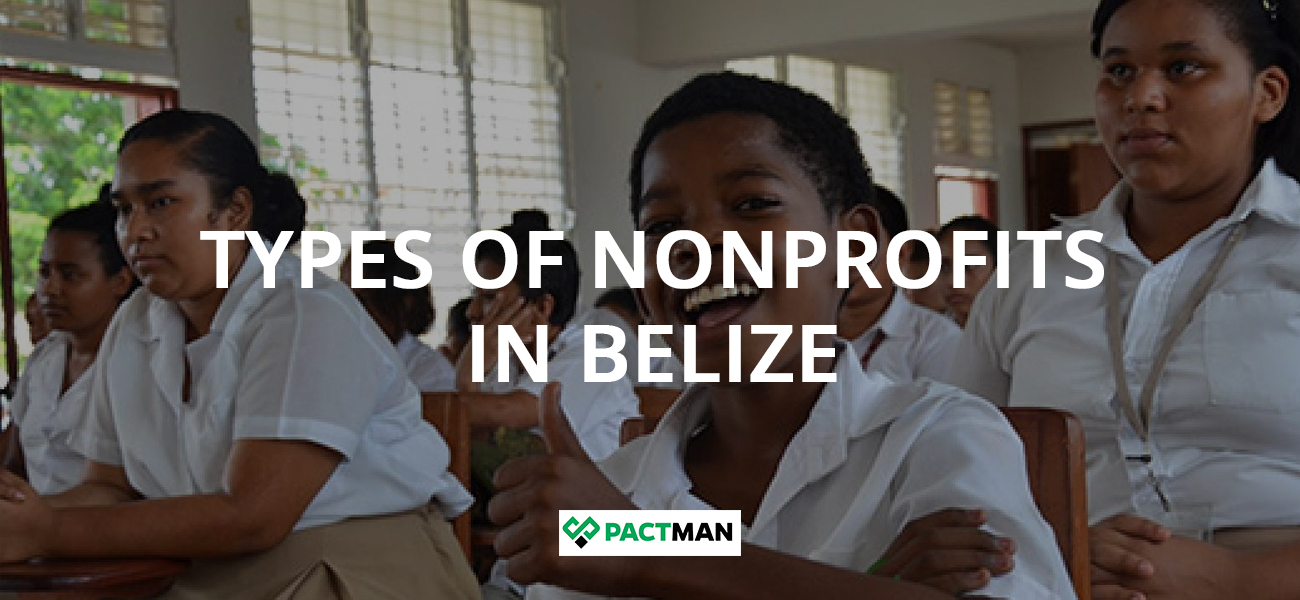A Belize Non-Governmental Organization (NGO) is a legally recognized nonprofit organization operating in the country. The various types of nonprofits in Belize work to further social, environmental, or political objectives and operate on a nonprofit basis.
In this article, we will consider the different classes of nonprofits in Belize and their functions.

- Prior to Belize’s independence in 1981, various types of nonprofits are known to deliver services in areas where the government was lacking.
- Also, a large number of NGOs rely on international donors and organizations to carry out their work.
- Nonprofits must seek ways to address issues of sustainability to foster continued progress.
What are the types of nonprofits in Belize?
Belize recognizes four classes of nonprofits in the country. Likewise, each of these entities is governed by an Act. We will provide a brief overview of the various classes.
1. Trusts
Trusts created in Belize are currently exempt from personal and corporate income taxes. The Registrar of International Trusts of Belize registers these types of nonprofits created in the country.
Generally, Trusts under the Belize Trust Act have a 120-year lifespan and are permitted to accumulate money during this time. Likewise, for trusts established or functioning on Belizean soil, the laws guarantee the maintenance of confidentiality.
To register a trust, an affidavit needs to be authorized by a notary public or other suitable official. This is carried out alongside the application registration. Afterward, a Certificate of Registration is given to the trust upon completion.
2. Foundation
The creation and dissolution of all foundations are governed under the Belize International Foundations Act of 2010 (amended 2013). These types of nonprofits are distinct legal entities with their own identity.
Unlike trustees, who are beneficiaries, foundation council members are accountable to the foundation because a foundation is a legal entity unto itself.
The 2013 modifications made it possible for foreigners to serve on the councils of many foundations without having to apply for a professional license. However, only foreigners with controllable leadership can create the organization.
3. Co-operative Societies
The Co-operative Societies Act is the current governing law of these types of nonprofits. Co-operatives are people-centered enterprises that are owned and controlled by and for their members to realize their common goals. Hence, the ultimate goal is to further its members’ economic interests.
The cooperative concept and movement were first implemented in Belize in the late 1930s and early 1940s.
A Registrar of Cooperative Societies has responsibilities and authority over registration, audit and inspection, dispute resolution, and dissolution. The registrar may also be appointed by the Governor.
4. Company Limited by Guarantee
The Belize Companies Act, 2022 was recently passed, according to the Financial Services Commission (FSC) of Belize. However, only the administrative elements of the law which have already been passed are currently in effect.
A company limited by guarantee has no shareholders or share capital. Hence, the corporation is held by guarantee members. In the case of a firm being wound up, its liability is constrained to the sum they agree to contribute. These inherent characteristics make it a worthy option for nonprofits.
Likewise, no profits are awarded to the members because all earnings must be put toward the company’s non-profit goals.
How do nonprofits in Belize fund initiatives?
Prior to Belize’s independence in 1981, various types of nonprofits are known to deliver services in areas where the government was lacking. Also, a large number of NGOs rely on international donors and organizations to carry out their work.
By and large, social services undertaken by NGOs in Belize play a crucial role in society. This has assisted in providing aid and support to the most vulnerable and needy groups. However, all sizes of social service NGOs confront sustainability issues. This can be aided by better resource management, strategic and financial planning, as well as income diversification.
Likewise, social services in Belize NGOs face numerous resource limitations and an absence of financial sustainability. This is further compounded by volatility in aid due to the global financial crisis.
Presently, NGO’s ability to operate sustainably and to effectively carry out its mission is directly threatened by the absence of funding. These backlogs of issues must be addressed for nonprofits to effectively deliver on their commitments.
Conclusion
The various types of nonprofits in Belize have gained the trust of citizens and communities who have grown to rely on the services they offer. Accordingly, while their efforts are lauded and valued, several issues have an impact on the viability of these organizations. These include leadership, staffing ability, and funding such as donor requirements.
Nonprofits must address these prevailing issues to establish sustainability in their endeavors.
If you enjoyed reading this article, do let us know. Please share your comments and suggestions with us at the bottom of this post.


